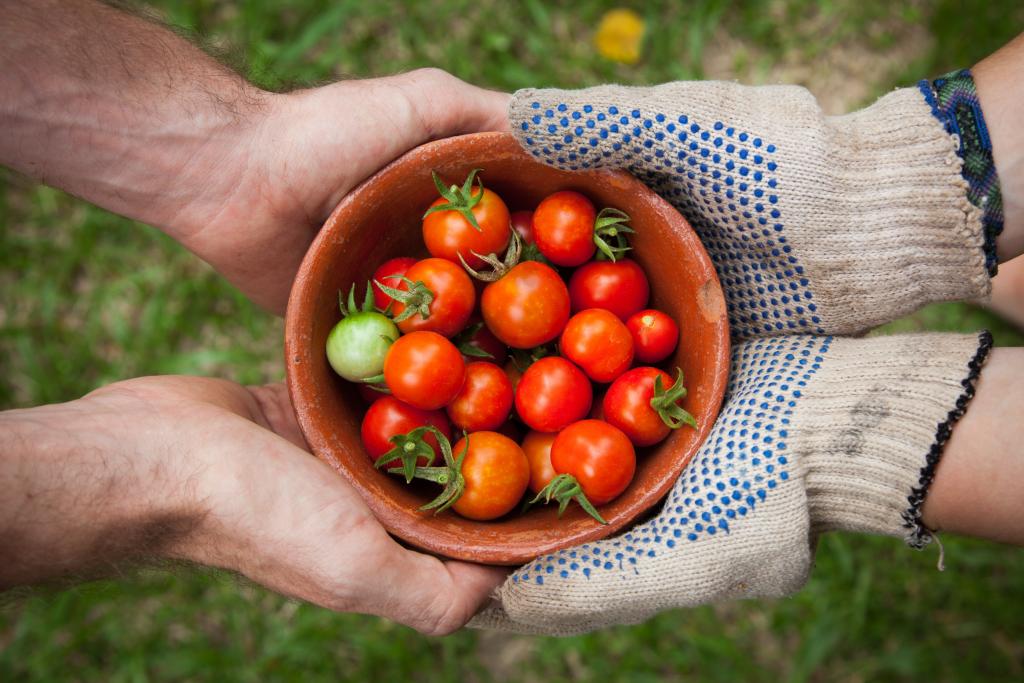EcoPreacher 1-2-3 sermon helps for preaching Deuteronomy 4:1-2, 6-9 using a green lens.
Christians are increasingly realizing that protecting food health and human health is essential to their faith. Here are ideas for reading and preaching Deuteronomy 4:1-2, 6-9 through a green lens. This is one of the readings for the the Fourteenth Sunday after Pentecost in Year A of Revised Common Lectionary, Aug. 29, 2021.

Focus on verse 9.
“But take care and watch yourselves closely, so as neither to forget the things that your eyes have seen nor to let them slip from your mind all the days of your life; make them known to your children and your children’s children.” (Deut. 4:9)
Eco-exegesis
Eco-exegesis is a method of interpreting the biblical text through a green lens using the principles of ecological theology. For this passage, we turn to the Eco-Bible, a Jewish ecological commentary on the Hebrew texts.
In the Eco-Bible, Rabbi Akiva Gersh explains that “watch yourself closely” means to protect one’s life from dangers as well as from those things that damage one’s body but are not lethal. Today we understand this as the “precautionary principle” which means taking preventative action in the face of uncertainty.
Applied to our current eco-crisis, we can say that as the Bible calls us to turn from those things that harm our bodies and the environment, we can apply that to include turning away from poisonous chemical pesticides. As Rabbi Gersh explains, “God cares a great deal about how we treat our bodies, about how we grow our food, and about the kind of food we choose to eat. Through our modern-day application of this ancient wisdom, we have the ability to transform ourselves and the world into greater and stronger vessels to help further the process of universal redemption.”[1]
1 Eco-Idea
The Eco-Idea is one succinct sentence that tells us who God is and/or what God does in relation to Creation and how we should respond as people of faith. The Eco-Idea for this sermon is:
Because God commands us to “watch ourselves closely” and make our witness known to the rising generation, our congregation’s support of local organic farms will emphasize God’s care for our bodies, our community, and the whole Creation.
2 Eco-Questions
Eco-Questions are what we can ask to help a congregation draw out the implications of the Eco-Exegesis and Eco-Idea.
- The agriculture industry now pumps over 1.1 billion pounds of pesticides into American farms, soils, and waters every year.[2] We know that pesticides have had some benefits, from reducing insect damage of crops to increasing food production. But there are trade-offs, including adverse effects on water quality and human health such as increased incidences of cancer. How do we decide what is truly “taking care” and “watching ourselves closely”? What is the church’s role in mediating that conversation?
- Where are the organic farms closest to our church? What is their philosophy about their agricultural practices? How does their vocation as organic farmers exemplify “taking care” and “watching ourselves closely”?
3 Eco-Actions
Eco-Actions are ways that a congregation might respond to the Eco-Idea and Eco-Questions. One of these possibilities may have salience for your preaching context.
- Invite local organic farmers to sell their produce on the church property. Ask them to offer educational workshops in exchange for free use of the church’s space to sell their products.
- Take a field trip to a local organic farm with adults, youth, and children. Go on a “taking care” scavenger hunt to identify the ways they see the farm protecting the health of human bodies, animal bodies, and Earth itself.
- If your congregation celebrates communion, preach about the importance of using organic wheat for the bread and organic grapes for the wine/juice. When we take in these elements of communion, we are ingesting what Creation (and thus God) is giving us. How can we protect the purity of the sacrament through our advocacy and activism?
As you can see from this reading of Deuteronomy 4:1-2, 6-9, connecting our faith to the ways in which we plant, grow, and harvest our food is deeply rooted in Scripture. In short, you are what you eat, and how we steward our food reflects our faith.
[1] Eco Bible: Volume Two: An Ecological Commentary on Leviticus, Numbers, and Deuteronomy, by Rabbi Yonatan Neril and Rabbi Leo Dee, The Interfaith Center for Sustainable Development, 2021. Forthcoming.
[2] Source: U.S. Department of Agriculture, Economic Research Service, Agricultural Resources and Environmental Indicators, 2019, Daniel Hellerstein, Dennis Vilorio, and Marc Ribaudo eds., EIB-208, Washington D.C.: GSDA, 2019, https://www.ers.usda.gov/webdocs/publications/93026/eib-208.pdf.
Read also:
Ideas for preaching about Jesus and the Syrophoenician woman next week in Mark 7:24-37: Calling People Dogs: Juxtaposing Jesus and Trump
A Dozen Bible Passages for Preaching a Creation-Care Sermon
God Camped Out With Us; A Sermon for a Church Camping Retreat
Composting Our Anger and Grief: Luke 13:1-9

The Rev. Dr. Leah D. Schade is the Assistant Professor of Preaching and Worship at Lexington Theological Seminary in Kentucky and ordained in the ELCA. Dr. Schade does not speak for LTS or the ELCA; her opinions are her own. She is the author of Preaching in the Purple Zone: Ministry in the Red-Blue Divide (Rowman & Littlefield, 2019) and Creation-Crisis Preaching: Ecology, Theology, and the Pulpit (Chalice Press, 2015). She is the co-editor of Rooted and Rising: Voices of Courage in a Time of Climate Crisis (Rowman & Littlefield, 2019). Her latest book, co-written with Jerry Sumney is Apocalypse When?: A Guide to Interpreting and Preaching Apocalyptic Texts (Wipf & Stock, 2020).
Twitter: @LeahSchade
Facebook: https://www.facebook.com/LeahDSchade/













